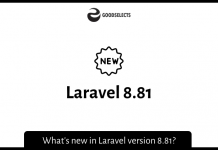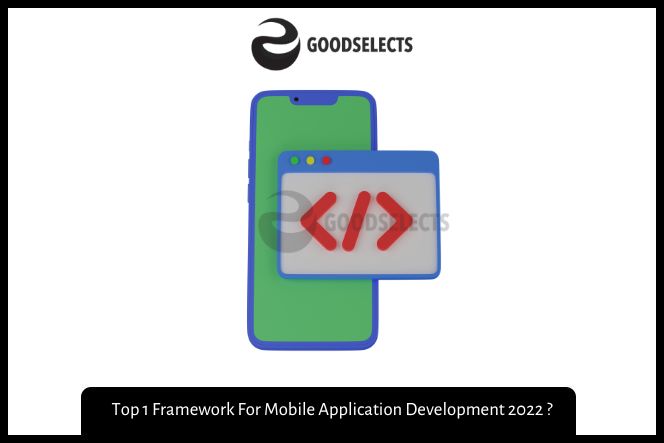There are a number of different frameworks out there for mobile app development. This article will explore React Native, Xamarin, Angular JS, and Apache Cordova. These frameworks are designed to help developers build and deploy mobile applications for multiple platforms, both iOS and Android. Regardless of the platform you’re targeting, there’s a framework that will fit your needs and save you time.
Top 1 Framework For Mobile Application Development
React Native
If you’re looking for a mobile application framework that works well under tight budgets, React Native is the right choice. As a startup, you’re likely on a budget and want the best technology available. This framework makes developing mobile apps easy and efficient. This framework includes a wide range of third-party plugins, including Native Modules and JavaScript Modules. You can get started right away by downloading the free version of React Native and learning all about its features.
React Native is a framework that enables developers to use JavaScript to generate UI elements in a mobile app. This method was first used by Facebook’s Ads Manager app. The Facebook team used the framework to develop its app for both iOS and Android. The framework was released in 2015 and became the second largest project on GitHub in terms of number of contributors. In 2019, the framework has over 9,100 contributors.
React Native is an open source framework that allows developers to write code once and use it across multiple platforms. This allows for reuse of up to 90% of native framework code. Because it’s open-source, you can contribute your knowledge and code to the framework and learn new things. In addition, React Native is highly cost-effective. It’s easy to maintain, and the same code can be used to create a mobile app for both iOS and Android.
Xamarin
If you are planning to develop a mobile app for both Android and iOS platforms, you may want to consider Xamarin. This platform supports cross-platform development and is supported by many third-party libraries. The most compelling aspect of Xamarin is its ability to achieve native-level functionality. It comes with a slew of features, including native code support, a rich ecosystem, and a number of powerful third-party libraries.
Xamarin is an open-source, cross-platform development framework that lets developers build cross-platform mobile apps. It provides 90 percent code reuse across major platforms. Its technology stack was originally developed by Mono developers, and today boasts a growing community of over 1.4 million developers. The development ecosystem is highly customizable and extensible, and it supports many programming languages. It also offers a range of libraries, tools, and platforms.
Although Xamarin offers many benefits, it also has its drawbacks. Because it uses a single technology stack, developers don’t have to switch environments, which can be an issue for some. This makes Xamarin ideal for apps with a smaller development budget or for projects where the time to market is critical. However, there are some things to be aware of before deciding whether to use Xamarin for your next mobile app project.
Angular JS
Angular JS is one of the best frameworks available for developing mobile apps. It is built on dependency injection style and bootstraps apps with services. This style of development is beneficial in many ways, such as allowing developers to make changes without having to rewrite the code. Angular JS also allows developers to create features quickly and control the initialization process with automated tests.
AngularJS comes with a number of built-in features and has been developed by Google. The open-source platform provides extensive customer support and is likely to continue growing. If you already know JavaScript or C#, Angular JS is an excellent choice. While it is possible to develop a mobile app using other frameworks, Angular JS is the best choice for complex apps.
Angular JS is a popular open-source framework with a large community of skilled developers. As an open-source project, AngularJS is maintained by engineers dedicated to the project. It also has a large online community to support users. Its forum is also a good resource for addressing technical issues. The Guardian uses AngularJS in its web app and regularly mentions it in hackathons and other IT communities.
Angular is popular with new adaptors. It is cross-platform compatible and works seamlessly across all browser environments. It also offers off-the-rack tools and robust components. Another major advantage of Angular is that it provides bi-directional data binding, which disperses influence when data changes. Therefore, the framework is ideal for both web apps and mobile applications. You should consider using it in your next project.
Apache Cordova
The decision to abandon the development of hybrid web apps made by Microsoft and other companies may be due to the recent announcement that PhoneGap Build will no longer be supported. Many developers have switched to mobile application development. Moreover, the announcement has forced the business owners to consider Cordova as a riskier option. According to Statista, Cordova has declined in popularity compared to the other frameworks.
The advantages of using Cordova for mobile app development are numerous. Cordova is a cross-platform framework that is compatible with most major operating systems. It can be used to build both hybrid and native apps using HTML5 and JavaScript. Using a Cordova-based app development approach can save time, as developers no longer have to translate SDK files to target platforms. The advantages of using this framework include:
Native plug-ins can be used to extend Cordova’s capabilities. Native plugins are called from JavaScript and communicate with the HTML5 page. Native plugins can also interfere with build processes and cause sudden crashes. Native plug-ins are not stable enough to be used by developers without extensive knowledge of mobile app development. It is not easy to install or uninstall them on different platforms. It is also important to check that the framework is compatible with the platforms you are working on.
Ionic
Ionic is a free SDK framework for building hybrid mobile applications. It provides developers with access to different plug-ins, UI components, and native APIs to create robust and attractive mobile applications. Moreover, it is an open source and free framework, which means you can edit the source code without any restrictions. As a result, you can create mobile applications with less effort than ever. But what makes it so special?
Ionic was created to bridge the gap between web-based and native-like app experiences. It supports more than five million developers and is used to build PWAs, or Progressive Web Apps. PWAs are a type of web application shell that provides native-like experiences on different platforms. Ionic is a framework for creating PWAs, and its early versions were built on Apache Cordova and AngularJS. It combines the best of both worlds, giving your users the best of both worlds.
Its popularity and community support mean that building apps with Ionic is easy. Its massive developer community is ready to share tutorials, add-ons, and templates. On Stack Overflow, you can find answers to your questions. Also, the community forum is an excellent source of help if you are having trouble figuring out how to create a custom app. So, before starting your own Ionic app development, read up on these tips to get started.
Swiftic
If you’re looking for a mobile development framework that makes it easy for you to create apps that look and work great, Swiftic is a great choice. Its easy-to-use platform makes it possible for anyone to create an app, including those without a lot of experience. In addition to providing basic app features, Swiftic also allows you to customize your app with custom themes and colors. You can also integrate your app with external social networks. Moreover, you can use ready-made HTML code to customize your app. Swiftic does not provide enterprise-grade services, however, such as location-based services and in-app advertisements.
As an open-source framework, Swiftic is extremely powerful. Its features include social media integration, expert help, and app promotion. Swiftic is also used by thousands of small businesses. Ionic is also an open-source, cross-platform framework that comes with UI components pre-built. It also has a remarkably intuitive interface. Despite being free, Ionic allows you to create cross-platform mobile apps with a minimum of coding.
Swiftic allows you to submit your apps to three ADP marketplaces, including Apple’s iOS and Google Android app stores. The framework also includes conversion rate optimization tools. While it doesn’t offer native app development, Swiftic is still a great choice for small businesses and non-programmers. It’s important to note that Swiftic is not compatible with hot reloading, so you can’t make changes in the source code of an app and have them immediately implemented in the deployed version.







































